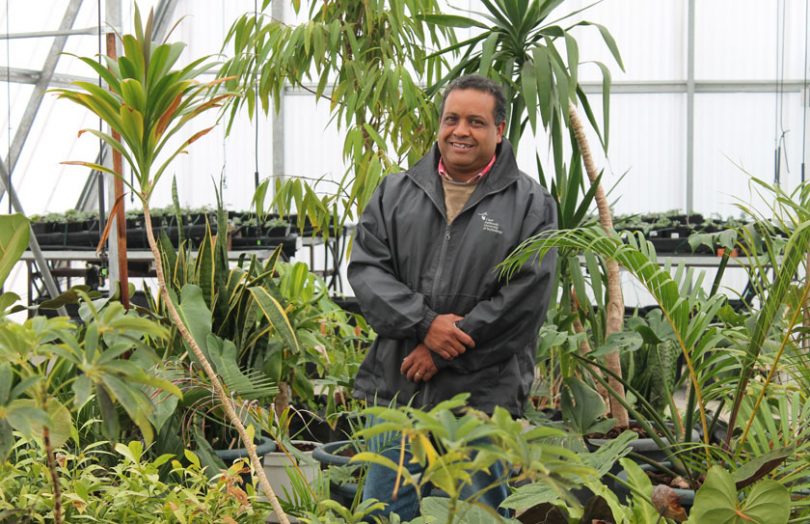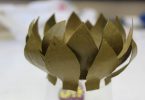A specially formulated mushroom compost tea may just be what’s needed to save indigenous medicinal plants that are facing extinction.
Horticulturist Timothy Jasson, who heads up operations at the CPUT nursery, is currently exploring the effects of compost tea, which is a brew of compost extract and water, on the growth and nutritional value of the Siphonochilus aethiopicus, commonly known as Wild Ginger, and the Hypoxis hemerocallidea, which is referred to as the African Potato/Inkomfe.
The study is important in the South African context as both plant species are sought after for its medicinal properties and is widely used by traditional healers in the treatment of flu, cancer, headaches, asthma and various other ailments, says Jasson.
However, over-harvesting and a lack of cultivation of these medicinal plants to provide additional stocks have seen both plant species listed on the South African National Biodiversity Institute Red List of Threatened Species.
“These plants are extremely valuable and the demand will not decrease. That is why it’s important to find ways to conserve it,” he says.
CONSERVE
Over the past two years Jasson has formulated and experimented with different compost tea brews in order to ascertain if it had any positive impact on these medicinal plants.
To produce the compost tea, compost is brewed in water to extract nutrients, in order to create a biologically rich feed for soil and plants.
“It’s like brewing a cup of tea,” says Jasson.
The finished product is then applied as a soil-drench for seedlings or is either sprayed directly onto plants or soil.
“One can have different formulations of compost tea and each produces a different result because of the nutrient content of that specific compost mixture. For example, mushroom compost tea consists of straw, chicken manure and spent mushroom mycelium extract and will produce a specific result. If I use a leaf waste, cow manure and general soil and brew that, I will get a different result,” he says.
RESULTS
Initial results of the study show that there are advantages to using mushroom compost tea in the cultivation of these medicinal plants. Advantages include an improvement in plant growth as a result of improving nutrient retention in the soil as well as protecting plant surfaces.
The study uncovered potential anti-oxidant activity in both medicinal plants, as a result of compost tea extract being stored in the bulb structures underground.
“Compost tea is linked to organic farming, where organic farmers/ growers attempt to reduce the reliance and cut out chemical fertilizers and their application in general commercial farming operations. Although genetic modification of plants can increase the yield, it can also in some cases reduce the nutrients. Organic farming attempts to create a complete seasonal organic sustainable nutrient cycle, with crops vs animals vs soil requirements vs harvest. This cycle restarts with direct seed sowing or planting for the new season”
Jasson says the Wild Ginger and African Potato plants are a complex species and more research in this area is needed.







